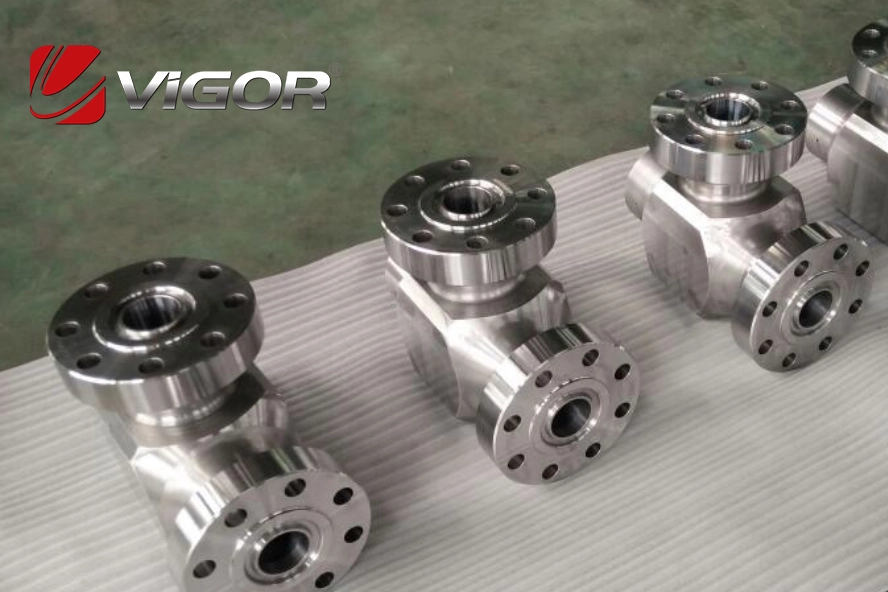
Knowledge
Incoloy 800HT, the "all-rounder" of high-temperature pressure vessels

In the extreme working conditions of chemical engineering, nuclear power and other fields, Incoloy 800HT has become a star material in the pressure vessel industry due to its "high-temperature resistance, corrosion resistance and high strength" trinity performance. Today, we will deeply analyze the "genetic code" and practical capabilities of this alloy!
I. Chemical Composition: The Precise Alloy Formula
The core of Incoloy 800HT is composed of nickel, chromium, and iron, with performance leaps achieved through precise control of trace elements:
|
Element |
Content Range(%) |
Core Function |
|
Nickel (Ni) |
30.0 - 35.0 |
Forms an austenitic matrix, resisting high-temperature oxidation and carburization |
|
Chromium (Cr) |
19.0 - 23.0 |
Generates a Cr₂O₃ protective film, resisting corrosion and sulfidation |
|
Iron (Fe) |
≥ 39.5 (balance) |
Lowers material cost and optimizes hot workability |
|
Carbon (C) |
0.06 - 0.10 |
Forms carbides with Al and Ti, enhancing creep resistance |
|
Aluminum + Titanium |
0.85 - 1.20 |
Strengthening grain boundaries in synergy, maintaining structural stability at high temperatures |
Design Highlight: Through the ternary synergy of carbon, aluminum, and titanium, 800HT forms a stable γ' phase (Ni₃(Al,Ti)) at high temperatures, with creep resistance more than three times that of ordinary stainless steel.
II. Mechanical Properties: "Hardcore Strength" at High Temperatures
1. Room Temperature Properties (Solution Annealed State)
- Tensile Strength: 450-580 MPa (1.5 times that of ordinary steel)
- Elongation: 30%-45% (Excellent plasticity ensures formability)
- Impact Toughness: Axial ≥ 150 J/cm² (Outstanding resistance to brittle fracture)
2. High Temperature Properties (Above 700°C)
- Creep Resistance: Fracture strength ≥ 32 MPa after 1000 hours at 870°C
- Thermal Stability: Maintains the integrity of the oxide film even after long-term use at 980°C
- Coefficient of Thermal Expansion: 13.3×10⁻⁶/°C (20-100°C), reducing thermal stress damage
Comparative Advantage: At 800°C, the strength of 800HT is four times that of traditional 304 stainless steel, and its service life is extended by 5-8 years.
III. The "Three Fronts" of the Pressure Vessel Industry
1. The "Guardians" of High-Temperature Reactors
- Ethylene Cracking Furnaces: Withstand temperatures up to 900°C and hydrogen environments, replacing traditional 310S stainless steel, and extending equipment lifespan by three times.
- Hydrogenation Reactors: Resistant to hydrogen embrittlement and sulfur corrosion in 15 MPa high-pressure and H₂S-containing media, reducing failure rates by 70%.
2. The "Safety Barriers" of Nuclear Power Plants
- Steam Generator Heat Transfer Tubes: Comply with ASME SB-407 nuclear-grade standards, resistant to high-temperature steam oxidation and stress corrosion.
- Nuclear Waste Treatment Equipment: Maintain stability in nitric acid and fluoride media, with a service life of over 20 years in radiation environments.
3. The "Future Mainstays" of New Energy Equipment
- Hydrogen Storage Vessels: With twice the hydrogen permeation resistance of 316L, facilitating clean energy storage.
- Supercritical CO₂ Power Generation Systems: Under 650°C/25 MPa conditions, material strength attenuation rate < 5%.
Conclusion
The birth of Incoloy 800HT exemplifies the truth that "material science drives industrial progress." From the precise formulation in the laboratory to the thousand-degree smelting in the factory, this alloy is redefining the performance limits of high-temperature pressure vessels!
Vigor has rich experience in producing Incoloy alloy die-forgings and the post-treatment. If you have any questions, demands, need new parts to be developed or to improve your supply chain, please feel free to contact us at info@castings-forging.com



